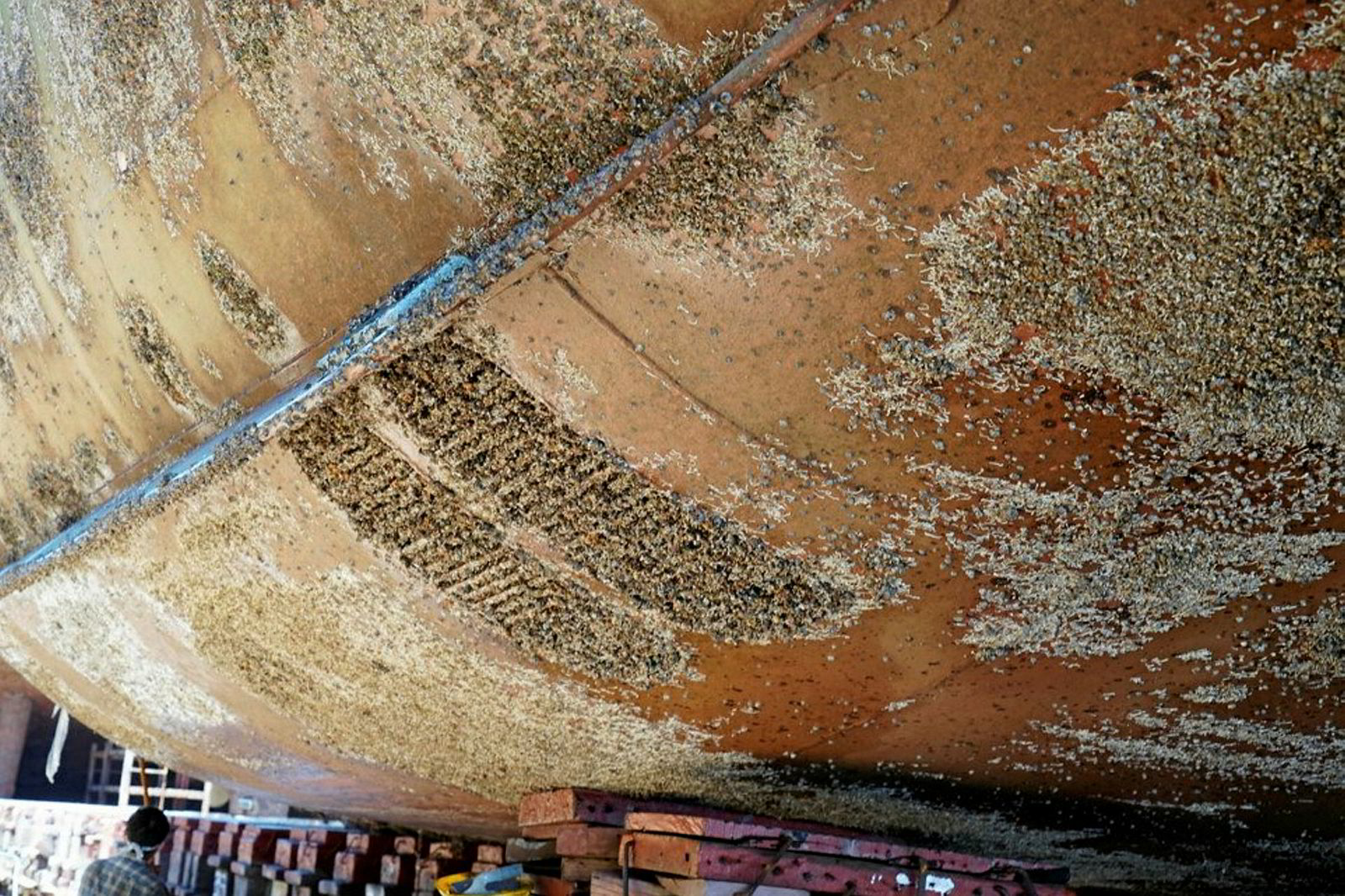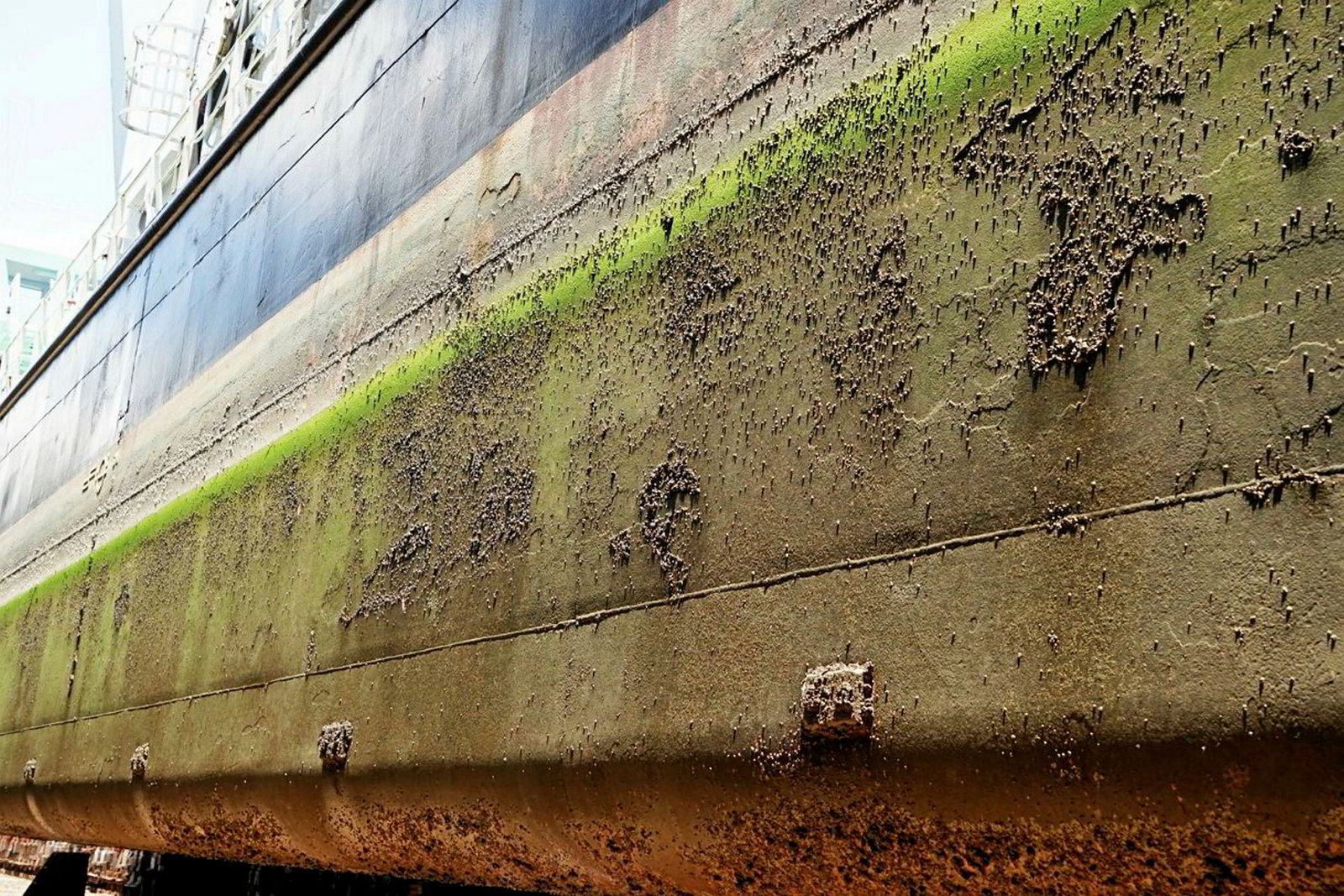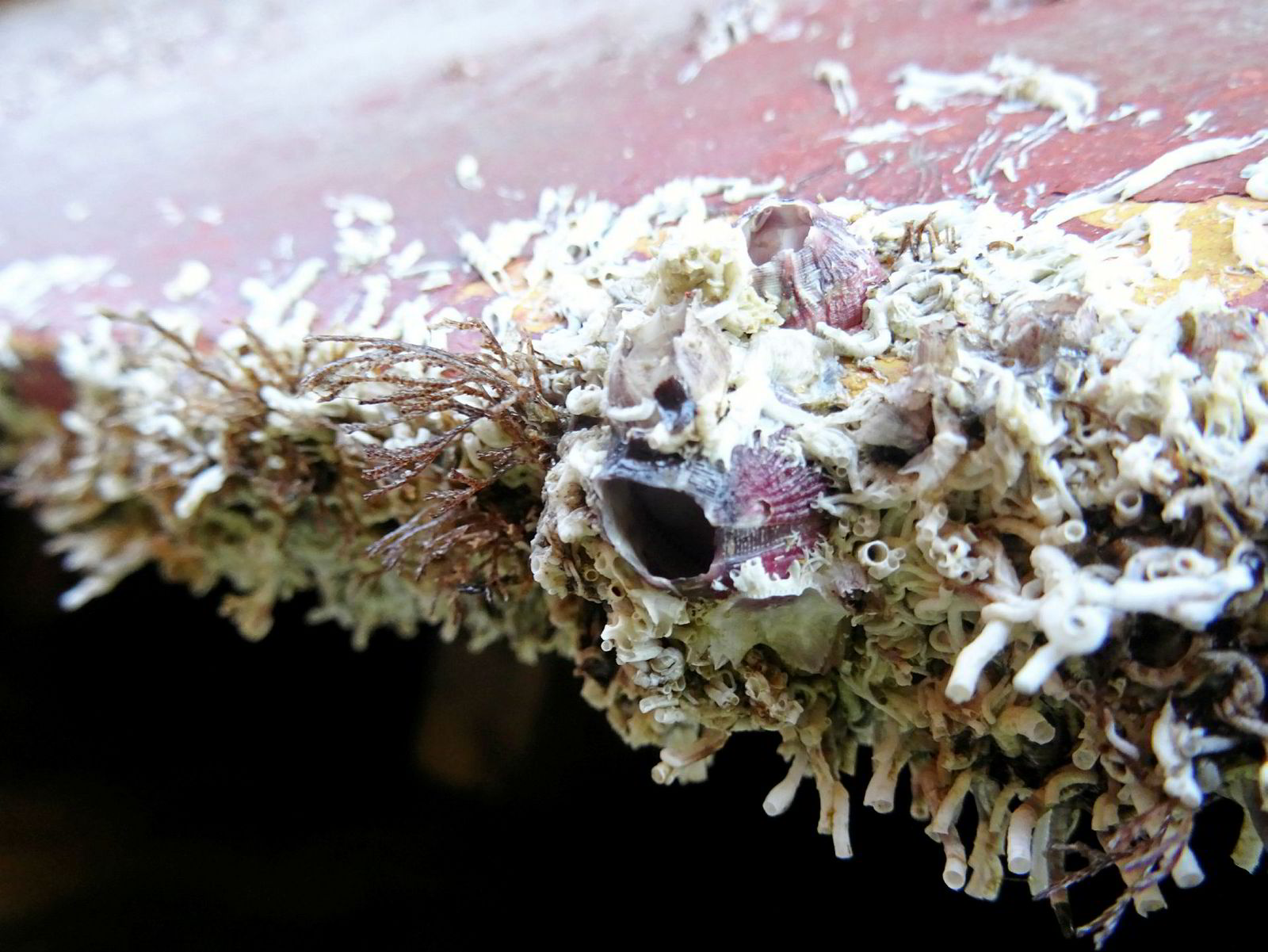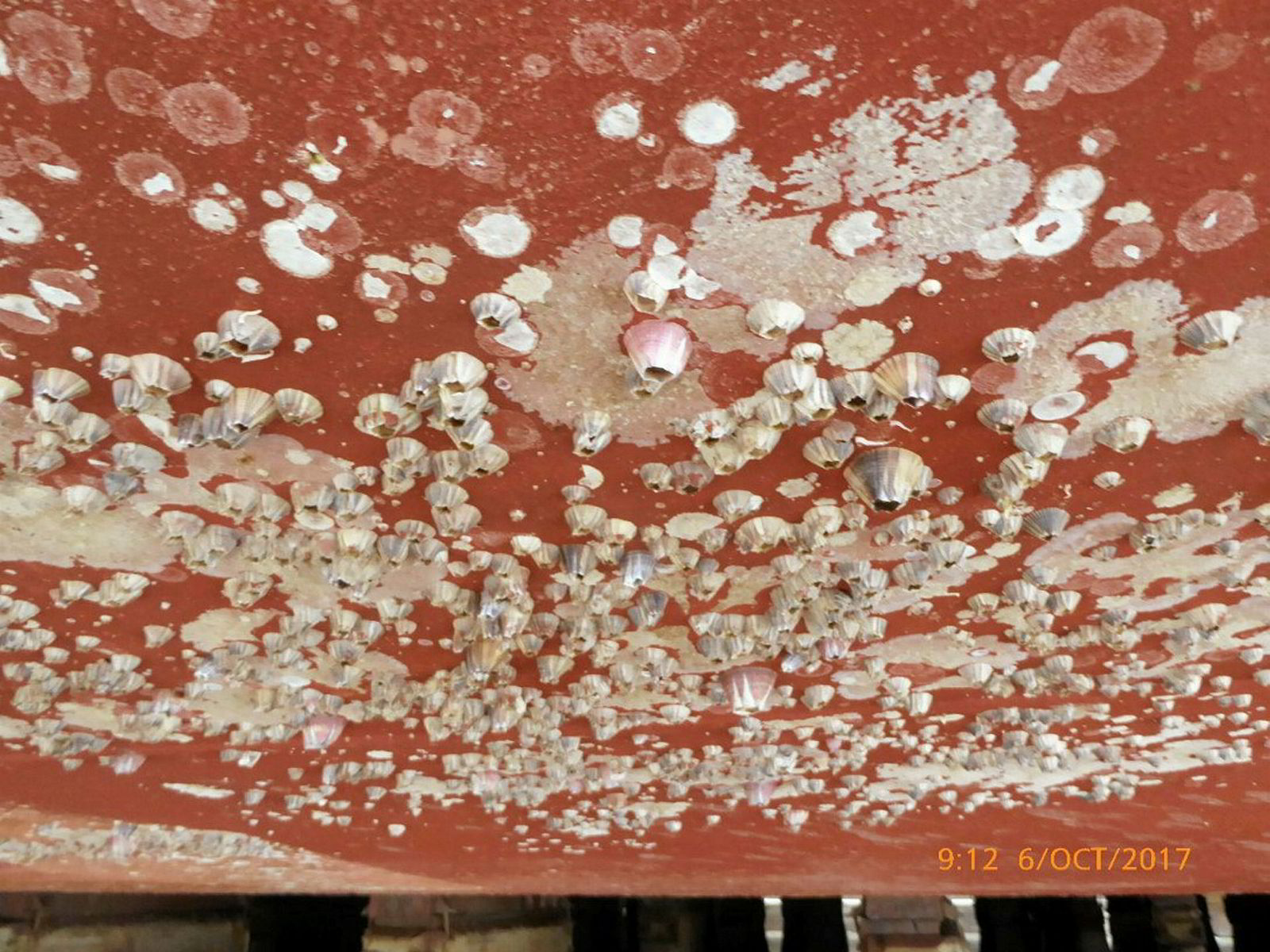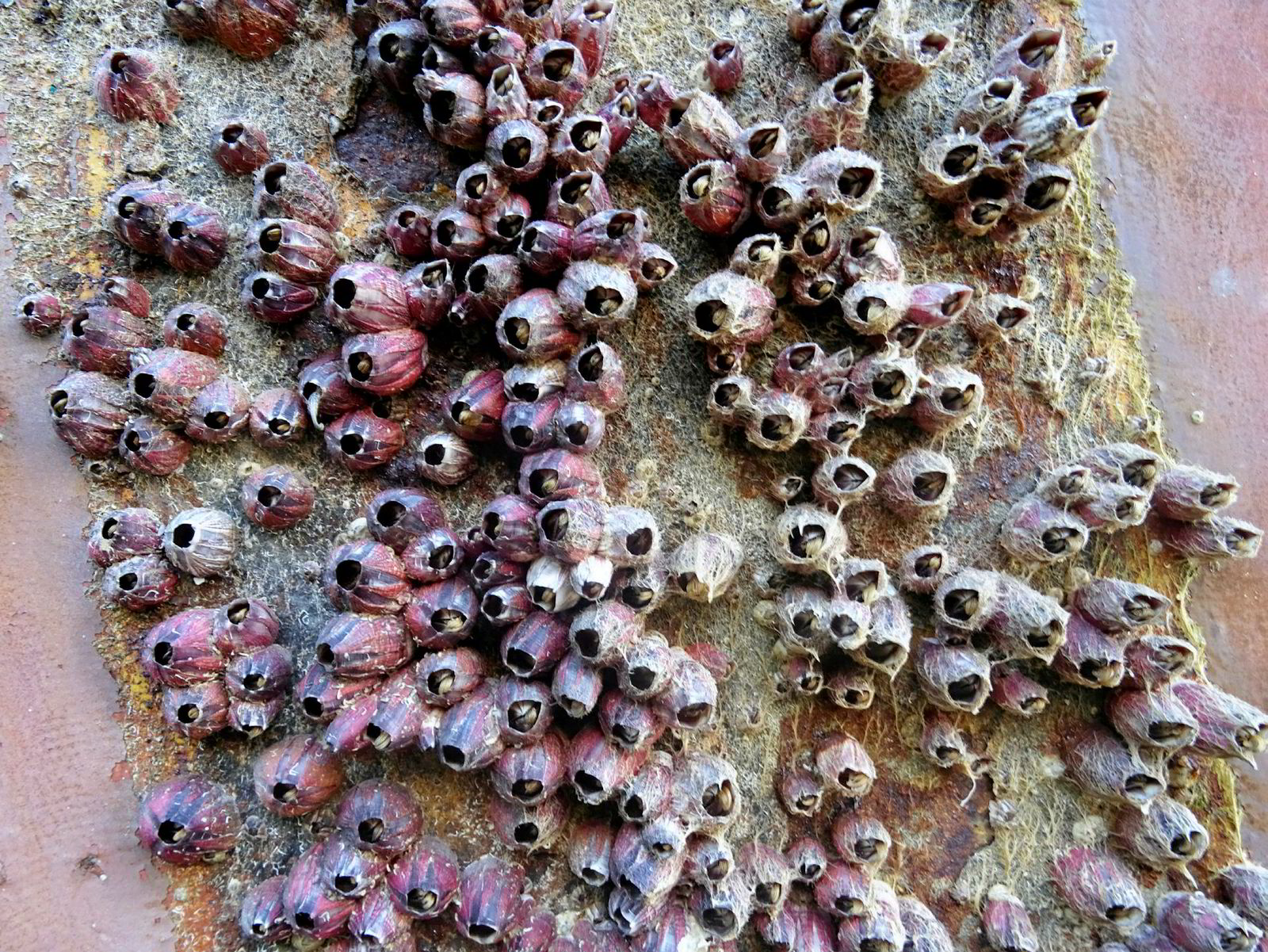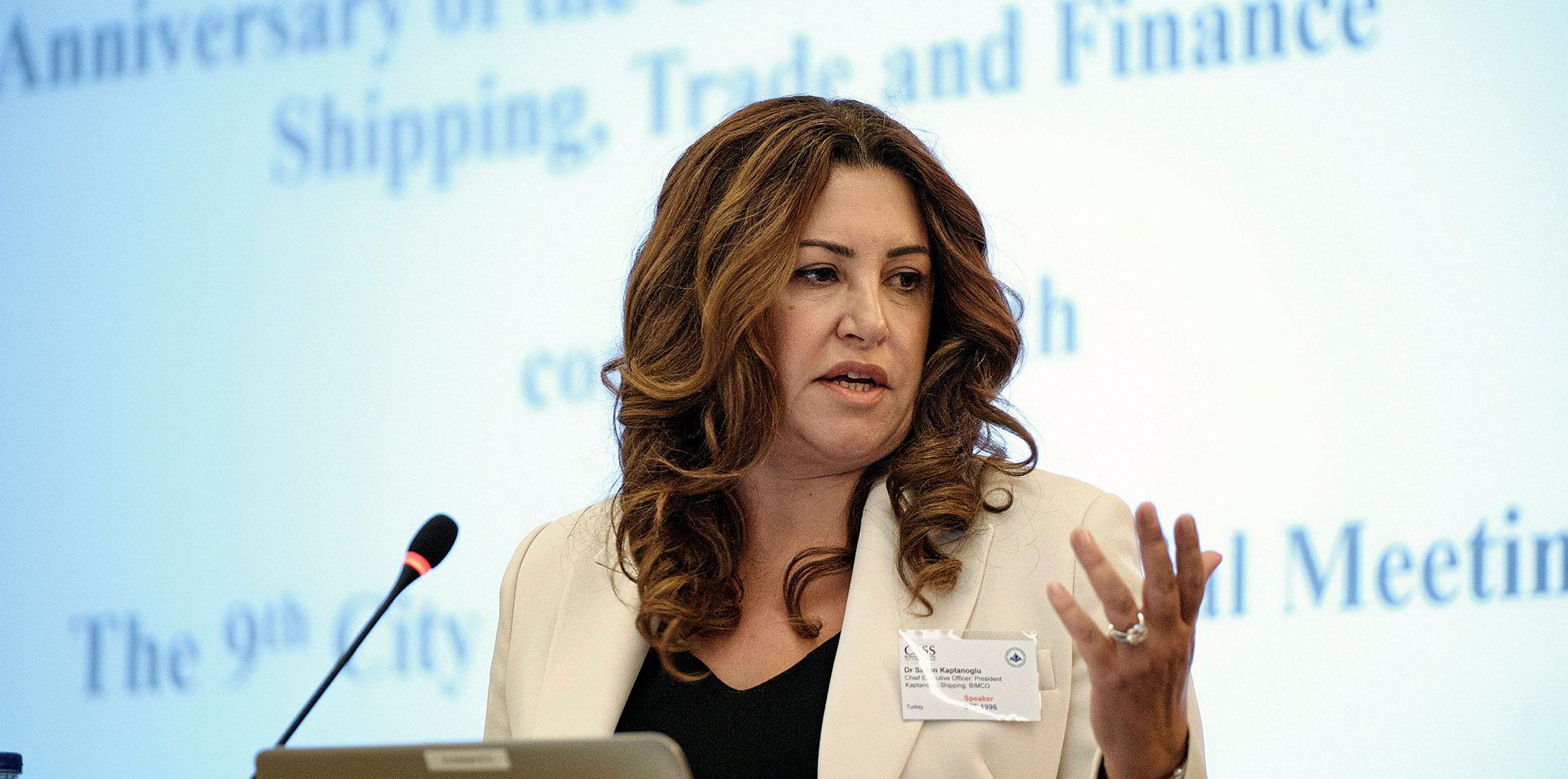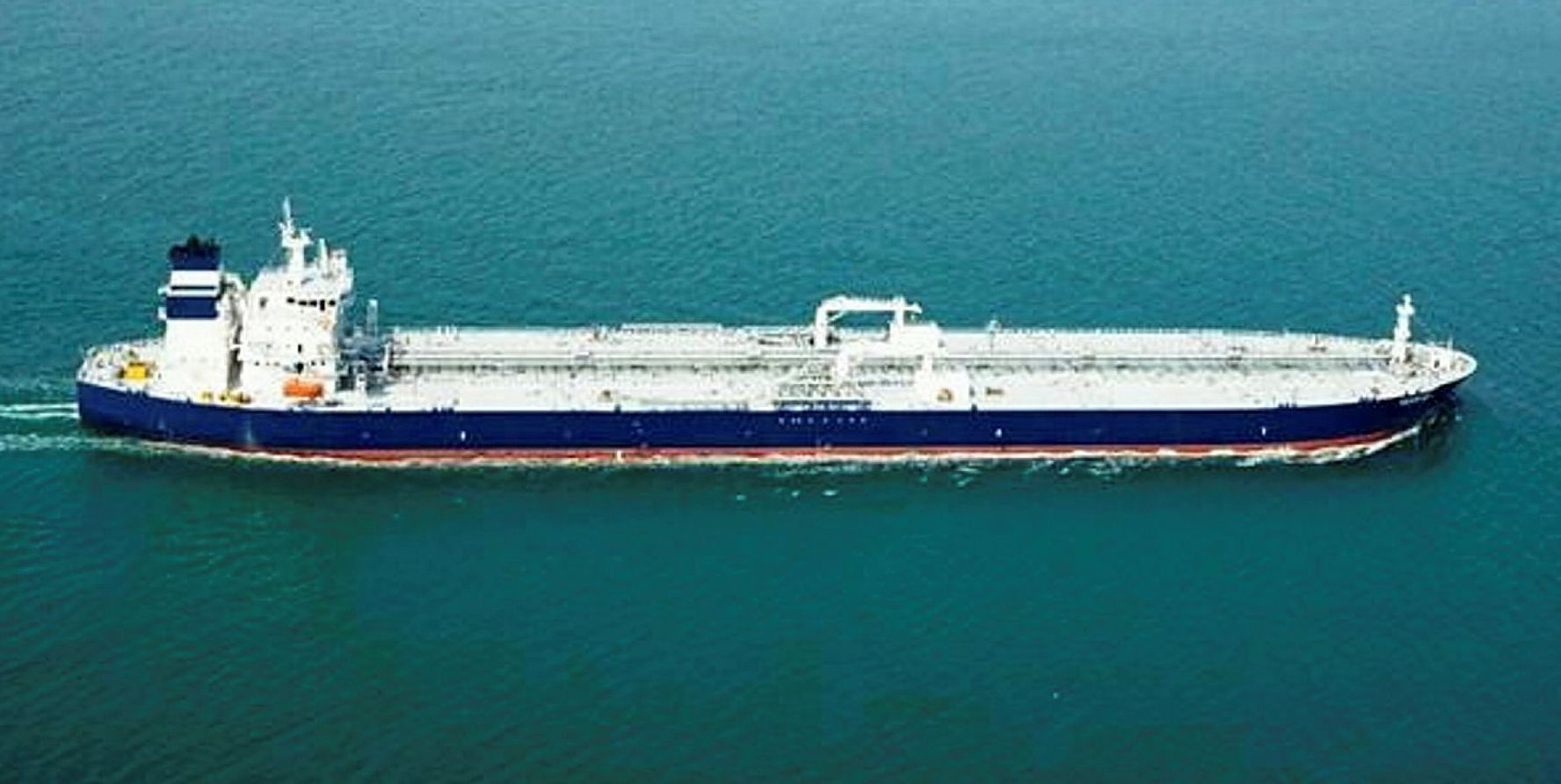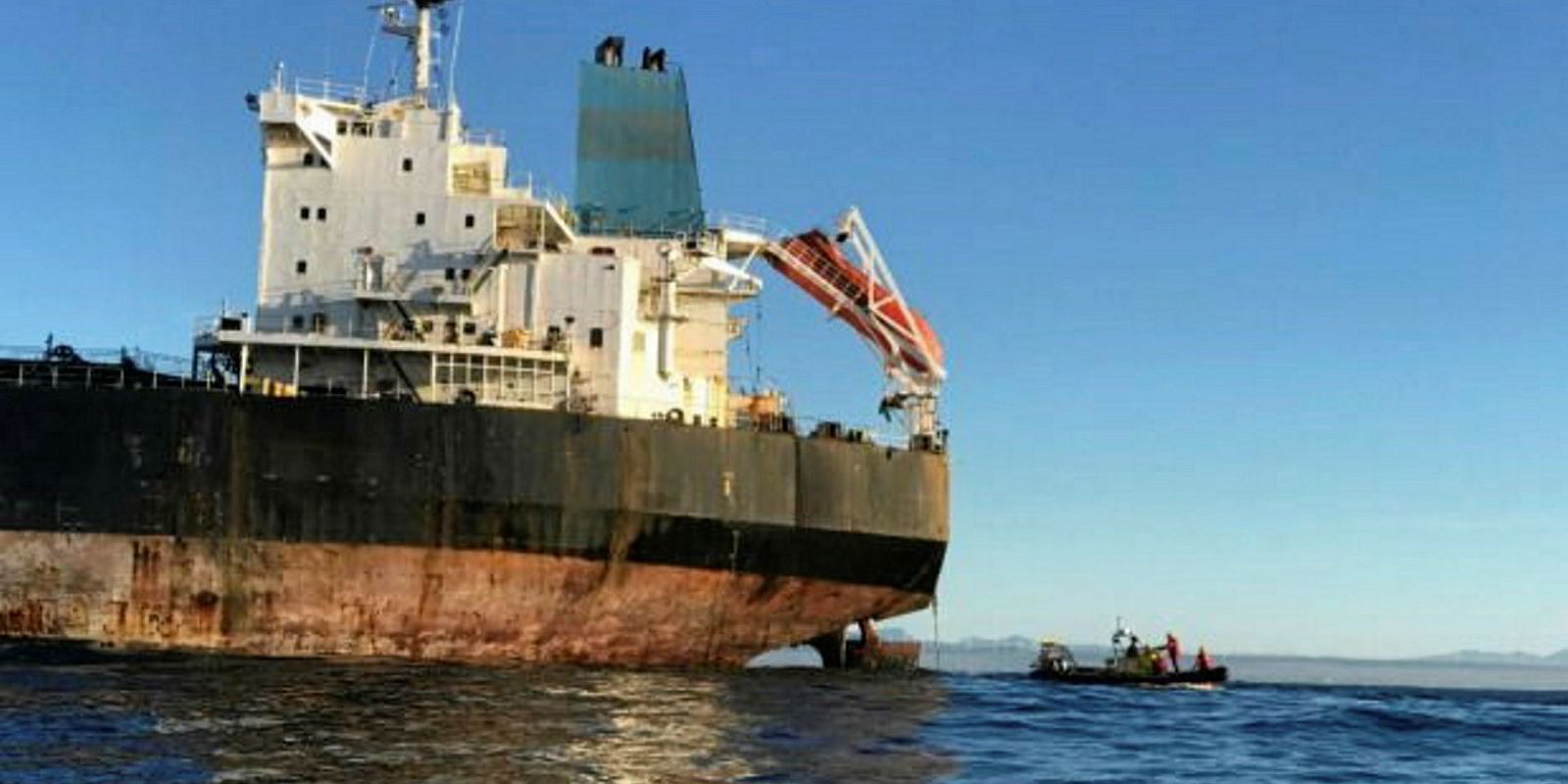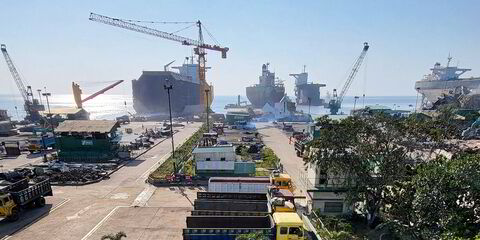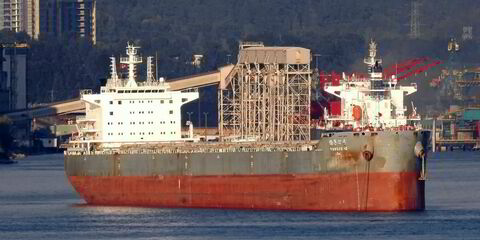With hundreds of vessels anchored for prolonged periods during the coronavirus pandemic, the shipping industry is facing potentially large financial losses from hull fouling, senior consultants have warned.
The growth of shells, aquatic plants and other organisms on vessels under waterlines is a natural phenomenon and well known to seasoned shipping players.
But the issue has been particularly highlighted because such fouling is set to affect an unusually large number of ships, according to GreenSteam chief executive Simon Whitford.
“All fouling happens faster if a vessel is idle, as movement prevents organisms from adhering to the hull,” Whitford told TradeWinds in an emailed interview.
Moreover, excessive fouling could affect various sectors.
With a plunge in demand for sea travel during the Covid-19 crisis, most of the world’s ferries and cruiseships are believed to be idling at sea.
Alphaliner figures showed a record high of 524 containerships totalling 2.65m teu were forced out of work as of mid-May due to a lack of shipping demand.
Meanwhile, industry estimates suggest the number of crude and product tankers used as floating storage is at an all-time high because of weak oil consumption.
Size does not matter
David Payne, managing director of Associated Petroleum Consultants (APC), said the growth pace of sea organisms are not determined by vessel types and sizes.
“All the ships are the same. It doesn't matter what's inside the ship. It’s [about] the outside hull,” Payne said.
What counts more are the temperature and chlorophyll levels of seawater, according to Whitford, whose company — a maritime data specialist — uses artificial intelligence to optimise cleaning schedules.
“Anchored vessels in warmer coastal climates are at more severe risk… Areas with high fouling pressure year-round are predominantly based in the tropics,” he said.
Tropical waters
This suggests many vessels are expected to face excessive fouling, with many operators facing little choice as to their idle locations during the pandemic.
Clusters of cruiseships have been observed in the Caribbean, the home turfs of major lines, and off the Philippines, where the government allows changing of Filipino crews.
Panama, the tropical country that is also the world’s largest flag state, has waived anchorage fees for several types of vessels, providing incentives to cash strapped shipping firms.
Shipowners sometimes would opt to park their vessels close to end users or transport hubs, as shown by the groups of tankers in South East Asia.
Industry estimates suggest hull cleaning takes about a day and costs somewhere between $5,000 and $50,000, pending on ship sizes and extent of fouling.
But Whitford warned of the limited availability of divers due to the health crisis. If the fouling gets out of control, costs will shoot up as the owner needs to arrange early dry-docking and recoating, according to Whitford.
“In general, dry-docking to clean and coat vessels is expensive and time-consuming both in itself and because in dry dock, the vessel isn’t creating revenue,” Whitford said.
For a vessel in need of cleaning, the amount of fuel required for its propulsion system is also higher because fouling organisms increase frictional resistance.
“Those who fail to manage their hull cleaning proactively are subject to higher fuel bills,” said Whitford, suggesting sometimes bunker costs could rise by over 20%.
“Once operations begin to return to business as usual, owners, operators and charterers may be subject to excess fuel bills because of fouling, at a time when many are looking to recuperate costs,” he added.
Mitigation measures

Payne, whose company was acquired by Brookes Bell in 2019, suggested several ways to mitigate hull fouling.
For one, some biocidal antifouling paints have a guarantee period of two to four weeks. There are even biocidal paints with an antifouling performance reported to be greater than 100 days, according to a note from APC provided by Payne.
Moreover, APC has also suggested vessels should move around after idling for certain periods if possible. This would activate antifouling paints and reduce the growth of organisms.
Regular checks for vessels being idled could prevent excess fouling, according to Payne, as ship operators would be able to start early cleaning before organisms become deeply attached to the hulls.
Even more importantly, owners, charterers and paint makers need to discuss how to best prevent hulling as “all the circumstances are different for each ship in each location”, Payne said.
“It's impossible to give a general guideline,” he added. “All I can say is regular [checks]. If you know you're going to be there for a year, then I would maybe get the hull checked every three or four months, or even six months.”
